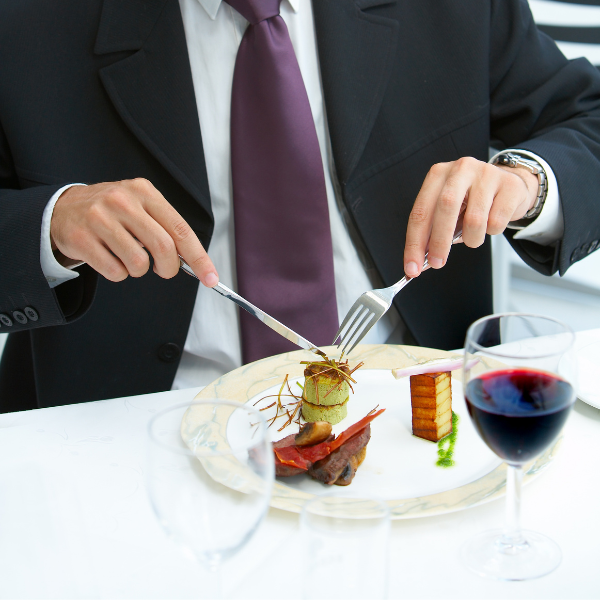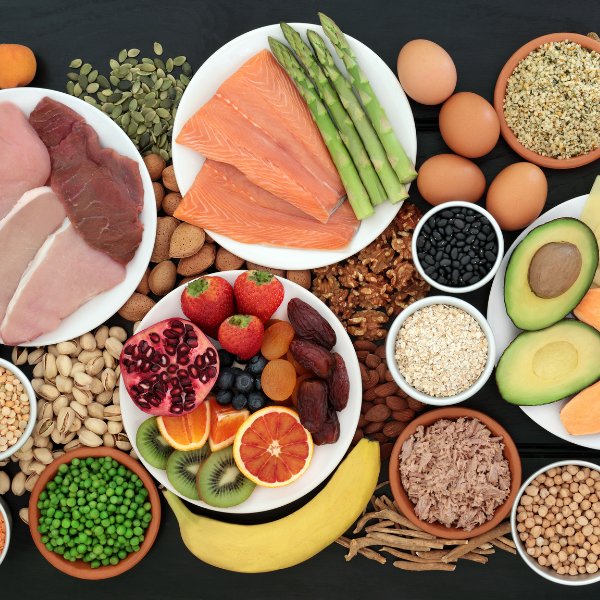A knife is a crucial tool in any kitchen, but it can also be dangerous if not handled properly. It is important to follow some kitchen knife safety rules to prevent accidents. Additionally, proper storage and maintenance are necessary to keep your knives in excellent condition.
Kitchen Knife Safety Rules:
1. Keep your knives sharp: A dull knife is more likely to slip, which can cause accidents. Keep your knives sharp, so they can slice through food effortlessly.
2. Use a cutting board: Do not cut on hard surfaces like plates, countertops, or glass. Always use a cutting board to protect the knife blade and prevent accidents.
3. Keep your fingers safe: When cutting, keep your fingers away from the blade. Use a claw grip, curling your fingers under and using your knuckles to guide the blade.
4. Never leave knives in the sink: Knives can easily become lost or damaged if left in a sink full of soapy water. Wash knives separately and dry them immediately after use.
5. Store knives properly: Keep knives out of reach of children and in a safe place to prevent accidents.
How To Sharpen Knives?
Sharpening your knives regularly will keep them in good condition and help prevent accidents. Here are some ways to sharpen your knives:
- Whetstones: A whetstone is a traditional sharpening tool that can be used to sharpen both Japanese and Western knives. Wet the stone and drag the blade across it at a consistent angle until the edge is sharp.
- Knife honing rod: These tools can be used to sharpen and hone the edge of a knife. They are portable and easy to use.
- Commercial knife sharpeners: These are automatic machines that can sharpen knives quickly and efficiently. However, they are expensive and may not be suitable for all types of knives.
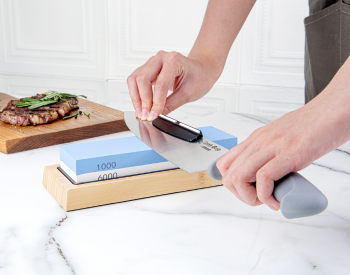
What are three tips for storing knives?
Proper storage of your knives is essential to keep them safe and in excellent condition. Here are three tips for storing knives:
- Knife blade covers: Use blade covers to protect the knife blade when it is not in use. These are especially useful when traveling with your knives.
- Magnetic knife holders: Magnetic knife holders can be mounted on a wall or inside a cabinet, providing a convenient and safe storage option.
- Knife blocks: Knife blocks are a classic storage option. They keep knives organized and within reach, while also protecting the blades.
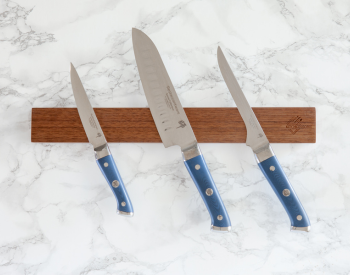
What is the proper maintenance of knives?
Proper maintenance of your knives will extend their life and keep them in excellent condition. Here are some maintenance tips:
- Clean and dry knives after each use: Clean knives with warm, soapy water, and dry them immediately. Never leave them in a sink full of soapy water.
- Oil your knife: After cleaning and drying, apply a small amount of oil to the blade to prevent rusting.
- Avoid the dishwasher: Knives should never be placed in the dishwasher, as the heat and detergent can damage the blade.
Should I oil my knife after every use?
It is not necessary to oil your knife after every use, but it is a good practice to oil it occasionally. This will help prevent rust and keep the blade in good condition.
Proper handling of knives for cutting?
Proper handling of a knife while cutting is essential for both safety and precision. Here are some tips:
- Use a cutting board: Always use a cutting board to prevent damage to the knife and the surface you are cutting on.
- Keep your fingers safe: When cutting, keep your fingers away from the blade. Use a claw grip to guide the blade.
- Use a sharp knife: A sharp knife is safer than a dull one, as it is less likely to slip.
Which Type Of Knife Is Right For Me?
When it comes to choosing kitchen knives, there are many options available, each with its own unique features and benefits. Here are some of the most popular types of kitchen knives and what to consider when selecting them.
- Damascus Steel Knives: These knives are known for their beautiful, intricate patterns and high-quality steel. Damascus steel is created by forging together multiple layers of steel, resulting in a blade that is both strong and durable. These knives are perfect for those who value both functionality and aesthetics.
- German Steel Knives: German steel knives are highly regarded for their durability and precision. They are made from high-carbon steel and are known for their sharpness and balance. German steel knives are perfect for heavy-duty tasks like chopping and slicing.
- Japanese Steel Knives: Japanese steel knives are known for their thin, sharp blades and lightweight design. They are made from high-quality steel and are perfect for precision tasks like filleting and slicing vegetables. These knives are highly regarded for their craftsmanship and precision.
When choosing a kitchen knife, consider the tasks you will be using it for and your personal preferences. Some important factors to consider include the weight and balance of the knife, the type of blade, and the handle design. It is also important to choose a high-quality knife that will last for years to come.
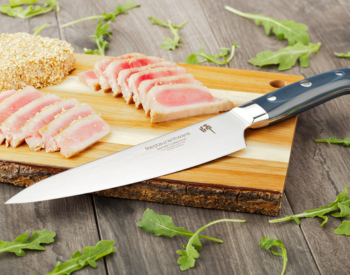
Slice With Confidence
Proper knife safety, storage, and maintenance are crucial for both the longevity of your knives and your safety in the kitchen. Follow these tips to keep your knives in excellent condition and prevent accidents. Remember to use a cutting board, keep your fingers safe, and always use a sharp knife. With proper care, your knives will continue to be an essential tool in your kitchen for years to come.




